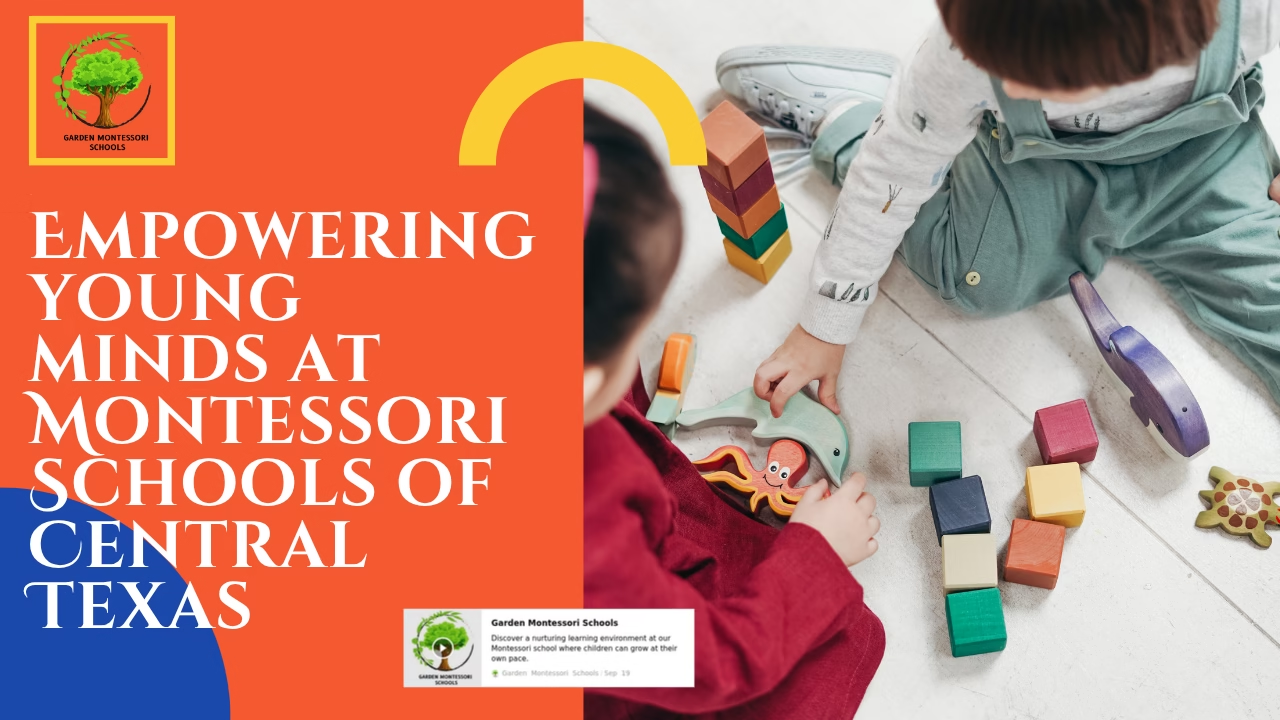As part of the school’s philosophy, children are allowed to learn at their speed with no time constraints on the completion of tasks.
Garden Montessori School believes in developing a child’s creativity, curiosity, and independence at their own pace in a comfortable environment.We discuss the main components that form the foundation of Garden Montessori School into an institution where children not only learn but also grow.
What is the Montessori Approach to Education?
Mastodon’s approach is based entirely on the principle that states that children will learn more efficiently if they are the ones to choose how and when to learn something.
At the Garden Montessori School however, this philosophy is put into practice through an integrated approach where the environment is geared towards instilling independence, responsibility, and self-motivation within the child.
Children are encouraged to participate in various activities because this practice helps them harness their cognitive, physical, and social abilities. Teachers are Guided by assisting the child’s development without unnecessary structures or schedules.
This approach allows for each child to learn in their style, and at their rate. The activities are relevant to the age of the children and spark their interests which extend the love towards learning.
Montessori’s teachings extend further into life skills, problem-solving, decision-making as well as how to work with others. Garden Montessori School does not allow children only to be ready academically as self-control and responsibility are also key areas to be emphasized.
Why is Garden Montessori School different?
Among others, Garden Montessori School is different for its focus on ensuring that the children’s growth comes first always in as much as the children’s well-being is emphasized for the school.
The school employs a blend of Montessori audible and hands-on learning materials and approaches to ensure independent thinking.
The design of the classrooms has been such that the children can see and reach the materials in the classroom, and this also motivates them to create something.
There are specific areas that are designed for different purposes such as practical life, sensory area, language room, mathematical area as well as arts area. Such variety is important for creating a good educational base with respect to all areas in development.
A further distinguishing feature of Garden Montessori School is the concept of multi-age classrooms.
Children of different ages come together in a cooperative learning setting where the older one helps the younger ones to further enhance their leadership attributes and feel a sense of belonging. This structure facilitates learning among the students and fosters social growth through constructive interaction.
How Does Garden Montessori School Encourage Social and Emotional Development?
Social and emotional development among children is an area that is important in the growth of the children, this feature is greatly pronounced at Garden Montessori School.
In a Montessori setting, the philosophy permits children to be responsible for their actions, be able to settle differences peacefully, and work together with other children.
In the classroom, children are allowed to select their activities, allowing them to gain autonomy and confidence in themselves. Such freedom, however, is coupled with consideration for others and their needs, allowing for empathy and cooperation. Teachers assist children in developing communication skills and learning how to interact with other children.
In addition, the multi-age structure at Garden Montessori School allows children to interact socially, be it in small groups or one-on-one. Such a structure instills a sense of community and belonging, which is critical for emotional growth. Children learn to respect each other’s differences, make friends, and be kind, and patient in the process.
What Are the Benefits of the Montessori Method for Young Children?
The Montessori method is particularly effective for young children in a few areas which it is intended for; independence, creativity, and critical thinking.
Young children can take advantage of a great opportunity at Garden Montessori School whereby they become responsible for their own learning which in turn builds their self-esteem.
Self-directed learning promotes a child’s confidence in decision-making and problem-solving. The Montessori materials enhance hand-eye coordination, and interaction, and are full of things making the process of learning much more enjoyable.
The hands-on approach contributes to developing fine and gross motor skills alongside cognitive functions such as concentration and memory.
Apart from that, the Montessori settings enhance children’s respect for learning. Children have the right to their own choices and follow subjects that are interesting to them and this leads to a better comprehension of concepts as well as fostering a desire to continue learning even later in life.
The method equally promotes emotional intelligence whereby understanding feelings expressing them and respecting those of others is instilled in children.
How Does Garden Montessori School Encourage Parental Involvement in Education?
To the Garden Montessori School, parental involvement is a fundamental component in any education of a child. The institution appreciates that parents and teachers communicate and are involved in learning practices together with their children.
Parents are encouraged to participate in meetings, classroom visits, and school activities. This involvement fosters strong relationships between teachers and parents, ensuring that the child’s developmental needs are met both in the childcare setting and at home.
Further, the school provides tools and classes for parents helping them comprehend more of the Montessori method and ways to assist in a child’s learning process even when not in school.
Garden Montessori School provides parents with the information they need to leave no stone unturned in their children’s education and development.
What are the Advantages Associated with the Montessori Education System?
The advantages accompanying Montessori education do not stop at pre-school years. Children who graduate from Garden Montessori School usually demonstrate impressive academic and social abilities that enable them to become successful individuals.
The Montessori method teaches self-discipline, problem-solving, and critical thinking ability, vital skills, especially in an age such as this one filled with rapid change. Because of the emphasis on independence, creativity, and entrepreneurial spirit instilled in the children, Montessori education equips children with a growth mindset and a can-do attitude when faced with life challenges.
Additionally, the classrooms in a Montessori setting are normally divided into age groups allowing the children to learn centralization and cohesion.
The older ones teach the younger ones contributing to their learning and developing responsibility. This fact fosters a sense of community and respect for each other and the Montessori-educated children grow up to exhibit kindness, confidence, and the capability to collaborate with others.
Conclusion
Schooling at Garden Montessori School is indeed special as it helps a child grow in all possible aspects growth academically, socially, and emotionally. In conjunction with the Montessori later the school also emphasizes nurturing a child to love learning, grow independently, and understand responsibility.
There is no need for parents to be worried because they leave their children in an environment that is nurturing and conveniently sparks the child’s curiosity to seek knowledge. Garden Montessori School helps in academic and social development through individualized attention and hands-on activities for the children which equips them to be competent in the future.
FAQ’s
What are the benefits of Montessori education?
Montessori education facilitates independence, encourages creativity, and develops critical thinkers and children who love to learn. Problem-solving skills and social skills are also developed as well.
How does Garden Montessori School involve parents?
Communication, email, workshops active listening, meetings, and many other activities are encouraged by the school so that parents understand their child very well and allow them to develop in a positive direction.
What long-term benefits do Montessori children experience?
They develop academic achievement, leadership, and collaboration as well as great potential to grow and meet all challenges since there are obstacles in every growth process.
What age range does Garden Montessori School cater to?
Garden Montessori School welcomes children between 3 and 6 years old and offers early education through the Montessori method appropriate for their age and stage.
What are the advantages of a multi-age classroom for children?
Older students assist younger peers in a cross-age context, which encourages leadership skills and a greater sense of community.



